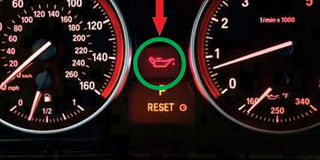How to protect your engine from corrosion

Sludge or gunk in a car engine is a combination of rust, oil and contaminants that have settled and been dispersed onto engine surfaces.
According to Paul Kirui, a vehicle inspector at Car Avenue, it acts like a sponge, absorbing and trapping gasoline and making combustion less efficient.
On the other hand, corrosion is caused by moisture and other contaminants that can make their way into a vehicle’s fuel tank. It can impact on the fuel pump, lines, and injectors.
Furthermore, formation of particles from corrosive processes such as rusting of metal surfaces can contribute to blockage of fuel filters, affecting the overall operation of the vehicle.
“First, if the oil is rusting and forming sludge, there is actually less oil available in the system to do what it’s supposed to,” notes Hanifa Nantume, a dealer in car oil.
“Second, when sludge is formed, it is sticky and coats all of the engine parts that it comes in contact with. This puts more mechanical strain on engine parts, including the radiator and cooling system. The oil is supposed to function partly as a coolant,” she adds.
Sludgy oil does the opposite by retaining heat. It also causes poor fuel mileage and rough acceleration.
In light of this, how does one to protect his or her car engine against sludge and corrosion?
Paul Kaganzi, a motor vehicle expert, indicates that a cleaner engine can perform as well as it was originally designed, making it more fuel efficient with lower emissions.
“Shell V-Power will keep an engine clean because it is specially formulated, and contains an exclusive formula designed to actively protect against performance-robbing gunk in all three grades,” he says.
“This oil is designed to defend engines against attacks from gunk and corrosion. It helps remove deposits and prevent gunk from forming. It also reduces friction resulting in to improved performance.”
Keep this in mind
• When you turn the ignition on, check the dashboard for the Check Engine Light and the Oil Change notification lights. Both could indicate that the motor oil needs replacing.
• Study the owner’s manual that your car manufacturer provides for instructions on when to replace the motor oil. Typically, manufacturers give you the mileage increments in which to replace the engine oil. Book an appointment with your mechanic accordingly.
• Avoid stop-and-go driving as far as possible. Walk or bike over short distances to prevent motor oil sludge buildup.
• If the dashboard gauge shows that the car is heating up, have your mechanic check for motor oil sludge also.
• It is never advisable to add engine oil if you see that the oil pressure is low. If the oil pressure light is on have it inspected or replace it completely.




